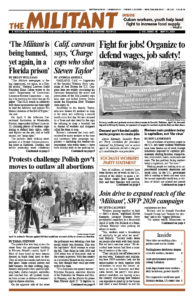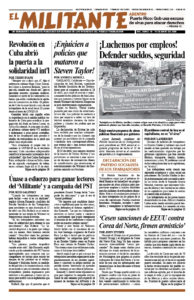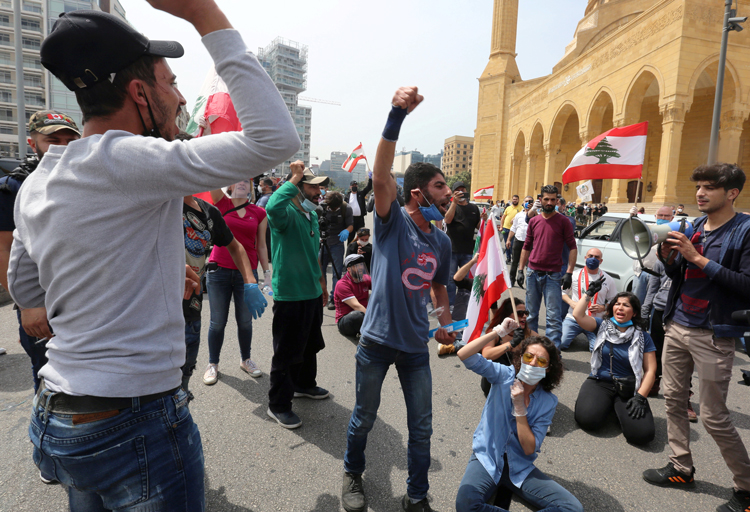Facing increasingly rising hardships that fall most heavily on working people, thousands of anti-government protesters have resumed demonstrations across Lebanon.
Actions involving people of all faiths demanding jobs, an end to crushing living conditions, for political rights and against Tehran’s intervention there began last October. They were ended when the government sent security forces to tear down their main camp in Beirut March 27.
The rulers claimed the attack was part of growing restrictions on work and public gatherings justified by coronavirus. The regime has imposed a strict lockdown since March 15, now extended through May 10.
“No one has a job anymore. … Salaries keep going down. We’re in the streets because nothing has changed since we left,” Ali Haidar told Reuters during a car caravan protest April 21 from central Beirut to where parliament was meeting. “We either die from hunger or we die from the disease. … Let us at least die taking a stand.”
Prices for basic commodities have soared by nearly 60% since October.
Barbers and other store owners in Tripoli organized a sit-in demanding to be able to reopen their shops. “The hungry people of Tripoli could not abide” by the shutdown, protester Michel Mahfouz told Reuters. “Get off our backs, we are hungry,” chanted protesters in the town of Aley, as they defied curfew measures. “We want to eat, we want to live.”
The protests were supported by the General Confederation of Lebanese Workers, which said that “the political and financial authorities [are] responsible for the current situation” due to “complicity in everything that led to the crisis.”
“These are militias, not political parties,” a man joining an April 28 protest in Beirut told the Washington Post. He said he was fed up with the country’s sectarian political setup in which parties organized along religious lines allocate government jobs and services to their supporters.
The capitalist rulers’ lockdown has increased unemployment, as well as sharpened their own crisis. The government is heavily indebted, spending 45% of its revenue on interest payments. Last month it defaulted on payments to holders of government bonds for the first time.
When the country’s currency then plunged 50% against the dollar, the government barred people from withdrawing dollars from their accounts April 24, triggering more protests around the country.
“As the currency was going down, the value of my mom’s minimum wage salary was also going down,” Khouloud Fawaz, who is unemployed, told Middle East Eye news agency at a protest in front of the central bank in Beirut.


